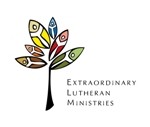Inclusion & Diversity
Extraordinary Lutheran Ministries seeks to be an anti-oppressive organization. In particular to our own histories and contexts, we recognize the need to be particularly committed to anti-racism, anti-sexism, and anti-ableism. We also seek to stand in solidarity as allies and active participants in other anti-oppression movements.
Policies regarding ELM’s commitment to anti-oppression and accessibility:
- ELM Anti-Discrimination Statement
- Communication Accessibility Policy
- ELM Food Policy
- Wafer Instructions
- Sustainability Policy
As part of our own work, the ELM Board has committed to an annual anti-oppression training.
2010: Trainer Colin Kennedy Donovan led a training about ableism and universal design. This work led to developing policies related to food, communication and physical accessibility.
2011: Stacy Kitahata led our Board through the Intercultural Development Inventory, which helped us begin to understand our Board’s capacity in regards to difference and similarity.
2012 & 2013: Jessica Vasquez Torres from Crossroads Antiracism & Training at our September 2012 and February 2013 meetings, which led to a richer understanding of our own levels of cultural competency and to deepen our commitment to anti-oppression. The ELM Board invited Jessica to lead our strategic planning work in order to keep the attention focused on these commitments as we plan our future.
2014: YK Hong led a training on gender identity, expression, and diversity at the ELM Board meeting in February. The session led to a deepened understanding of gender expression diversity, with connections to anti-oppression work. Jessica Vasquez Torres led a plenary session at the Proclaim Retreat entitled “Complicity: Exploring Queer Complicity in Cultural Dominance and How to Interrupt It.” The Inclusion Committee of ELM began plans to re-take the Intercultural Development Inventory.
Board members and staff are encouraged to seek out additional learning on their own.

